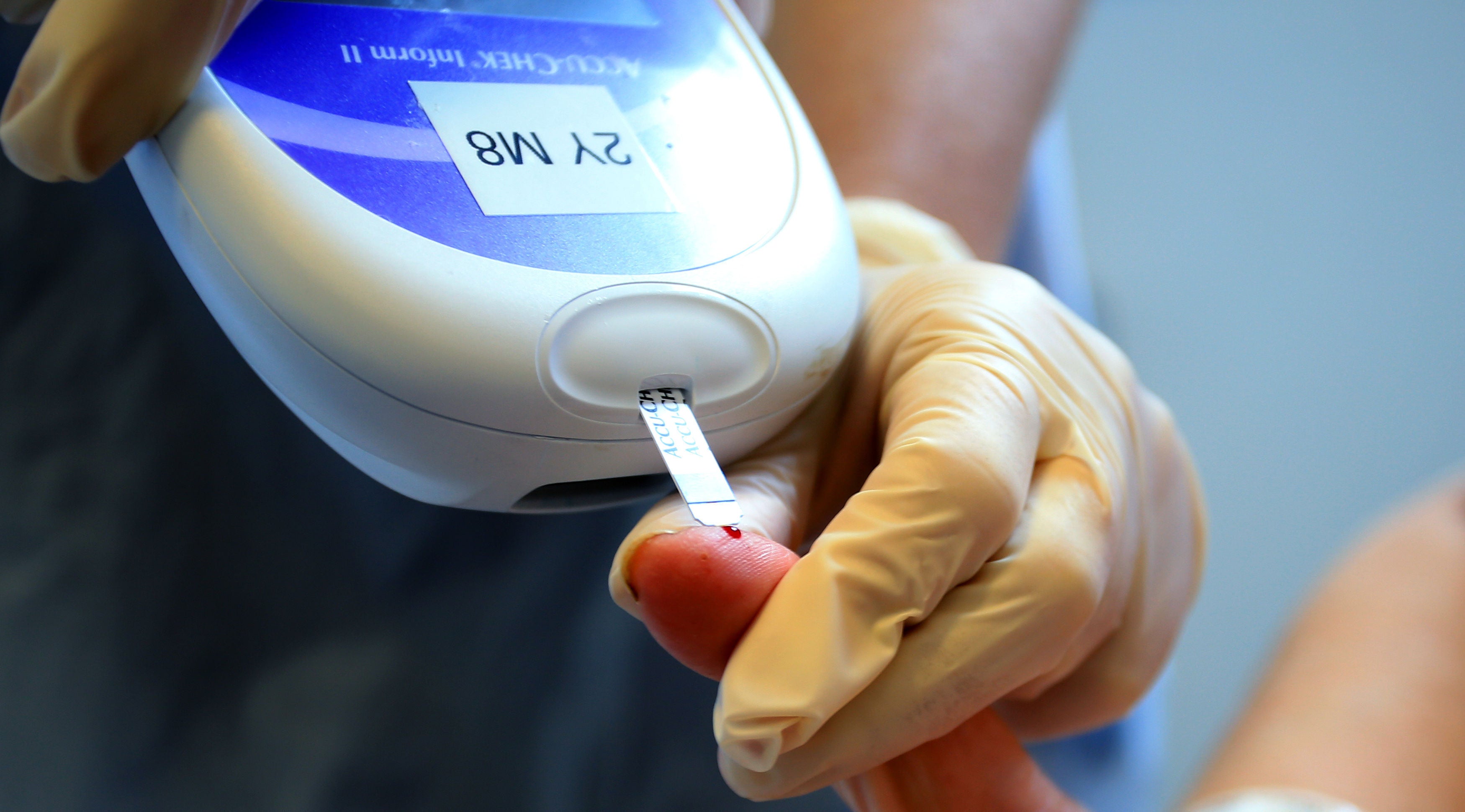I feel ‘food shamed’ by one of the UK’s biggest charities
Why on earth has Diabetes UK announced a tie up with weight-loss business Slimming World, asks Type 1 diabetic James Moore


“Together, we’ll aim to support people living with all types of diabetes, and those at risk of developing type 2, to manage their weight in a way that works for them,” Diabetes UK trumpeted as it announced a three-year partnership with Slimming World, a commercial weight loss business.
“Around 60 per cent of people with Type 1 diabetes and around 85 per cent of people with Type 2 diabetes are living with overweight or obesity,” the charity added. “This partnership has never been more needed than it is today.”
Really? The reaction from people with various types of the condition (there are several) told a very different story. It was swift and fierce. The organisation found itself the subject of a barrage of negative tweets, some promising to suspend the sort of regular donations upon which charities rely.
Even the timing of the announcement was problematic, seeing as it emerged during Eating Disorder Awareness Week. You couldn’t make it up – for nearly a third (30 per cent) of people with my type of the condition – Type 1, an incurable autoimmune disorder that knocks out your insulin producing cells – suffer from eating disorders. That, according to Diabetes UK’s own website, is twice the national average.
Many commenters voiced concern about the appropriateness of the Slimming World approach for people with Type 1 and even Type 2, which is much more common and can be influenced by “lifestyle” factors. The company operates on the weight loss club model with members “encouraged to plan 5-15 Syns a day to keep their weight loss on track without feeling like they’re missing out”.
When you’re already forced to count every last carb so as to gauge the correct insulin dose, counting “Syns” in addition seems like a positively sisyphean task. Many of us have also endured guilt tripping by healthcare professionals.
In my case, that crossed over into outright aggression, with a nurse once repeatedly jabbing her finger at the scales and shouting “can you see?” before repeating the number, over and over. That horrid looking number was enough by itself to prompt me to take action and I’m now two stone lighter. What I did not need to get there was the semi-public humiliation: goodness only knows what the people in the waiting room thought was going on.
While there are doubtless clients who feel they could benefit from the Slimming World approach – after all, it wouldn’t be in business if this wasn’t the case – I question whether a national charity should be aligning themselves with a commercial dieting organisation.
Maintaining a healthy weight is, of course, a good idea regardless of what type of the condition you suffer from. And some of those with Type 2 (with an empahsis on the “some”) can put it into remission through diet. But consulting with your medical team would seem to be the ideal first step.
So why is it that when it addressed “the community” in an open letter, the charity admitted that prior to signing the deal it “did not include any discussion with our lived experience or clinical advisory groups”?
This is the really eye opening revelation for me. Not speaking with representatives from your client group about a commercial partnership which could have serious implications is incomprehensible. Not including the clinical panel is positively dizzying.
“We have a shared ambition to enrich, strengthen and enhance the Slimming World experience for those people living with and at risk of diabetes who use the service,” the letter said. There was much about “listening” and putting in place “processes” to ensure no repeat of this kind of backlash. But there was no question that the partnership wouldn’t continue.
To me, the letter was woolly and very corporate sounding. But of course. Diabetes UK is a big charity. And big charities increasingly look and even behave very much like big businesses. They have salespeople (except that they are called fundraisers). They have big money executives, who can build lucrative careers in the sector, often hopping from one charitable organisation to another. They sometimes raise governance concerns. And they do deals. This sort of commercial tie up is far from unusual among the third sector’s leading lights.
The trouble is, of course, that in becoming big and business-like, charities risk losing sight of the people they are supposed to assist, their very raison d’etre. The corporate entity and its wheeling and dealing can seem like the priority – even if this conflicts with the interests of the client base.
Diabetes UK does some fine work, it should be said. I have, in the past, benefitted from that. But a period of reflection would certainly be wise. There’s no “syn” in that.






Join our commenting forum
Join thought-provoking conversations, follow other Independent readers and see their replies
Comments